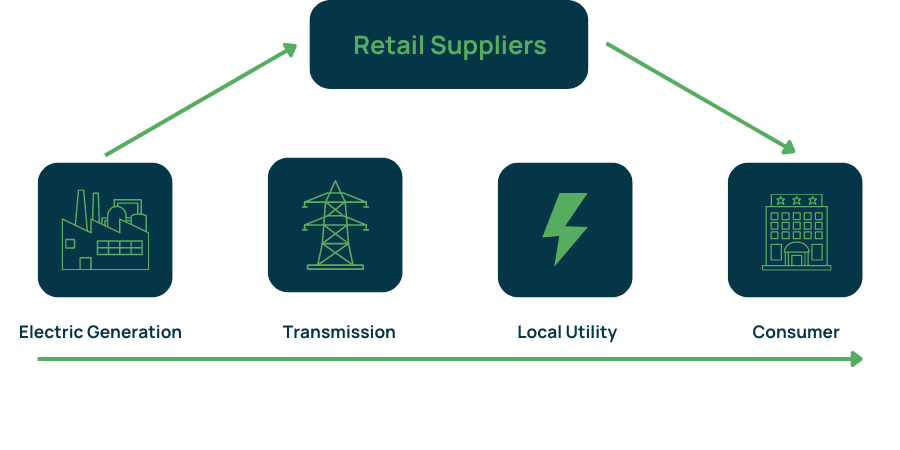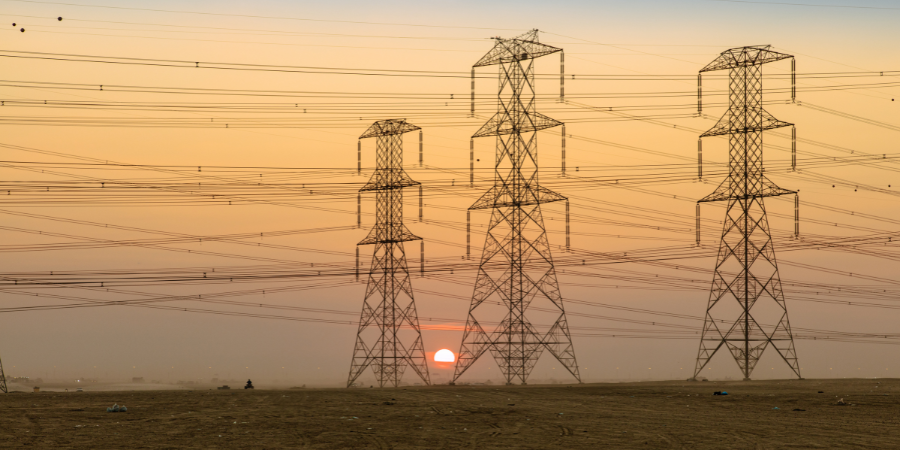At a Glance:
Click the links to jump ahead:
How Power Deregulation Works.
The history of energy deregulation is complex and interesting. When local and federal governmental bodies decided to break up utility monopolies, it gave opportunities to new energy retailers and wholesalers. In states where electricity or natural gas is deregulated, consumers have the choice to purchase their energy supply from a third-party, retail energy provider.
Consumers might elect to purchase from a supplier for a variety of reasons:
- They can secure a lower rate from a supplier to save money
- They can lock in a long-term rate for price stability
- They can purchase hybrid electric or gas products that meet their individual needs
If and when consumers or businesses decide to purchase their energy supply from a retail provider, the other components of their utility bill remain the same. In fact, in most states, local utility companies are still in charge of billing and managing utility lines, despite the fact that customers have supplier choice. In deregulated states, retail suppliers simply purchase electricity or natural gas from the wholesale market and resell it to end users in the retail market. The setup looks something like this:

Impacts On The Market.
Energy deregulation had many positive impacts on the economy and the market. From a consumer’s standpoint, deregulation created competition amongst energy companies. Consumers were no longer forced to pay the price set by the local monopoly, but now had the choice to purchase energy in the free market. This competition lowered prices for consumers and allowed them to save money on their utility bills.
In addition to the financial impact on consumers, energy deregulation created many new jobs and spurred economic growth. As each state began to pass legislation, more and more companies came into existence. These companies spanned the gamut from wholesale trading organizations, to transmission line operators, to retail electricity suppliers, to energy brokers and consultants.
Benefits Of Energy Deregulation For Consumers.
Electricity deregulation also has many positive benefits for consumers, particularly if you own a commercial business. In addition to reducing utility costs, there are many other advantages to energy deregulation:
In Conclusion.
In summary, energy efficiency has made many positive impacts on the market for both energy companies and consumers alike. Not only has this new economic structure allowed for competition in the markets, but it has also given birth to many new companies, solutions, and technologies in an essential industry. If you own a business in a deregulated state and are looking for ways to reduce costs or take advantage of energy deregulation, contact one of our energy experts today.



